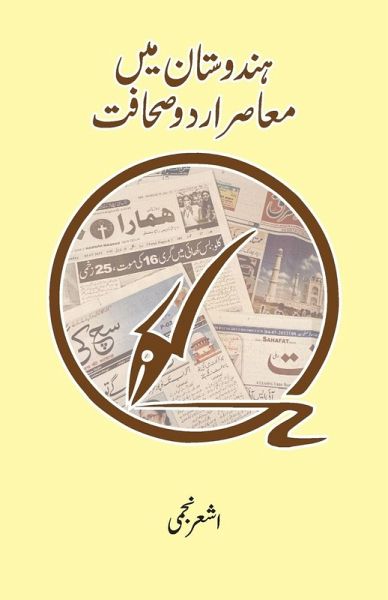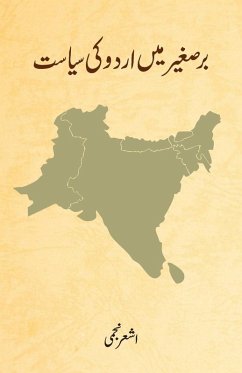
Hindustan Mein Muaasir Urdu Sahafat
Contemporary Urdu Journalism in India
Versandkostenfrei!
Versandfertig in 1-2 Wochen
18,99 €
inkl. MwSt.

PAYBACK Punkte
9 °P sammeln!
Following the Partition, the use of Urdu was increasingly confined to the Muslim population, ultimately leading to its current status as a language utilized exclusively by Muslims. Subsequently, following independence, the stance of successive governments towards Urdu was characterised by a combination of hypocrisy and systematic discrimination. Concurrently, the government's patronage shifted towards Hindi. The Hindi-speaking forces, which were characterised by their fascist tendencies, pursued a policy of favouring Hindi on the grounds of the Hindu majority and the political supremacy of the...
Following the Partition, the use of Urdu was increasingly confined to the Muslim population, ultimately leading to its current status as a language utilized exclusively by Muslims. Subsequently, following independence, the stance of successive governments towards Urdu was characterised by a combination of hypocrisy and systematic discrimination. Concurrently, the government's patronage shifted towards Hindi. The Hindi-speaking forces, which were characterised by their fascist tendencies, pursued a policy of favouring Hindi on the grounds of the Hindu majority and the political supremacy of the Hindi-speaking population in the northern regions of India. However, their actions also posed a threat to the integrity of the country as a whole. In South India, the violent reaction of the fascist Indian forces manifested as mass self-immolation and the burning of volumes of the Constitution. The political Hindiism of the pro-Hindi leaders of North India in power in the government house not only impeded the development of other Indian languages and the promotion of regional hatred and prejudice but also the unceasing invasion of English throughout the country. Furthermore, it facilitated the perpetuation of existing practices. In addition to Urdu, other languages spoken in northern India, which have a regional structure and a rich literary tradition, have been subjected to efforts to integrate them into Hindi under the auspices of the government. Hindi, on the one hand, lost a great deal of energy attempting to eradicate the identity of these regional languages. On the other hand, it had to contend with the presence of English. As a result, what should have been the logical consequence is that there is considerable demand for the official status of Hindi, but English has de facto monopoly over the country and no sage of Hindi has proposed a solution to the dominance of English. In India, all Indian languages could theoretically compete with English. However, due to the anti-English attitudes of Hindi-speaking people, they all became rivals of Hindi. As a result, there has been no practical attempt to restore English dominance in the past, and there are no signs of this happening in the future. India's National Linguistic Policy, which aimed to de-identify all the regional languages of the north, has not succeeded in this regard.














